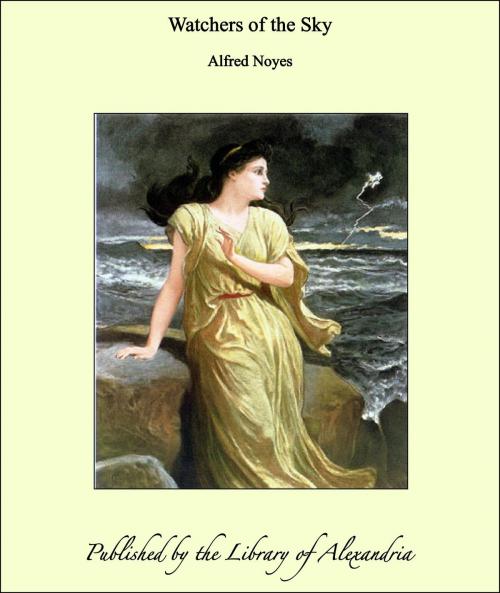| Author: | Alfred Noyes | ISBN: | 9781465557605 |
| Publisher: | Library of Alexandria | Publication: | July 29, 2009 |
| Imprint: | Library of Alexandria | Language: | English |
| Author: | Alfred Noyes |
| ISBN: | 9781465557605 |
| Publisher: | Library of Alexandria |
| Publication: | July 29, 2009 |
| Imprint: | Library of Alexandria |
| Language: | English |
This volume, while it is complete in itself, is also the first of a trilogy, the scope of which is suggested in the prologue. The story of scientific discovery has its own epic unity—a unity of purpose and endeavour—the single torch passing from hand to hand through the centuries; and the great moments of science when, after long labour, the pioneers saw their accumulated facts falling into a significant order—sometimes in the form of a law that revolutionised the whole world of thought—have an intense human interest, and belong essentially to the creative imagination of poetry. It is with these moments that my poem is chiefly concerned, not with any impossible attempt to cover the whole field or to make a new poetic system, after the Lucretian model, out of modern science. The first tale in this volume plunges into the middle of things, with the revolution brought about by Copernicus; but, within the tale, partly by means of an incidental lyric, there is an attempt to give a bird's-eye view of what had gone before. The torch then passes to Tycho Brahe, who, driven into exile with his tables of the stars, at the very point of death hands them over to a young man named Kepler. Kepler, with their help, arrives at his own great laws, and corresponds with Galileo—the intensely human drama of whose life I have endeavoured to depict with more historical accuracy than can be attributed to much of the poetic literature that has gathered around his name. Too many writers have succumbed to the temptation of the cry, "e pur si muove!" It is, of course, rejected by every reliable historian, and was first attributed to Galileo a hundred years after his death. M. Ponsard, in his play on the subject, succumbed to the extent of making his final scene end with Galileo "frappant du pied la terre," and crying, "pourtant elle tourne." Galileo's recantation was a far more subtle and tragically complicated affair than that. Even Landor succumbed to the easy method of making him display his entirely legendary scars to Milton. If these familiar pictures are not to be found in my poem, it may be well for me to assure the hasty reader that it is because I have endeavoured to present a more just picture. I have tried to suggest the complications of motive in this section by a series of letters passing between the characters chiefly concerned
This volume, while it is complete in itself, is also the first of a trilogy, the scope of which is suggested in the prologue. The story of scientific discovery has its own epic unity—a unity of purpose and endeavour—the single torch passing from hand to hand through the centuries; and the great moments of science when, after long labour, the pioneers saw their accumulated facts falling into a significant order—sometimes in the form of a law that revolutionised the whole world of thought—have an intense human interest, and belong essentially to the creative imagination of poetry. It is with these moments that my poem is chiefly concerned, not with any impossible attempt to cover the whole field or to make a new poetic system, after the Lucretian model, out of modern science. The first tale in this volume plunges into the middle of things, with the revolution brought about by Copernicus; but, within the tale, partly by means of an incidental lyric, there is an attempt to give a bird's-eye view of what had gone before. The torch then passes to Tycho Brahe, who, driven into exile with his tables of the stars, at the very point of death hands them over to a young man named Kepler. Kepler, with their help, arrives at his own great laws, and corresponds with Galileo—the intensely human drama of whose life I have endeavoured to depict with more historical accuracy than can be attributed to much of the poetic literature that has gathered around his name. Too many writers have succumbed to the temptation of the cry, "e pur si muove!" It is, of course, rejected by every reliable historian, and was first attributed to Galileo a hundred years after his death. M. Ponsard, in his play on the subject, succumbed to the extent of making his final scene end with Galileo "frappant du pied la terre," and crying, "pourtant elle tourne." Galileo's recantation was a far more subtle and tragically complicated affair than that. Even Landor succumbed to the easy method of making him display his entirely legendary scars to Milton. If these familiar pictures are not to be found in my poem, it may be well for me to assure the hasty reader that it is because I have endeavoured to present a more just picture. I have tried to suggest the complications of motive in this section by a series of letters passing between the characters chiefly concerned















